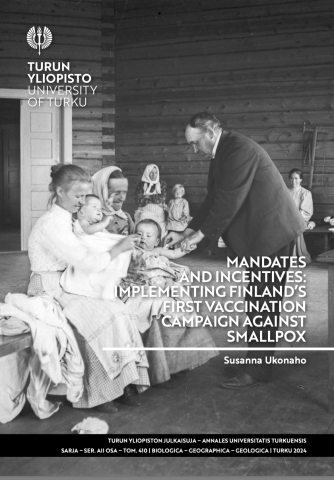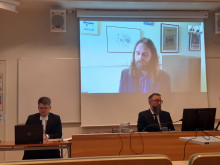
Susanna Ukonaho defended her PhD thesis ”Mandates and incentives: implementing Finlands first vaccination campaign against smallpox” at the University of Turku in June 2024.
Her opponent was prof. Romola Davenport (University of Cambridge, UK). Congratulations, Susanna!
View Susanna Ukonaho's doctoral dissertation here: https://urn.fi/URN:ISBN:978-951-29-9734-3
***
Abstract
Vaccinations have succeeded in preventing many infectious diseases and the emergence and spread of epidemics. However, recently vaccination coverage has decreased especially in many high-income countries due to, among other things, growing reluctance to vaccinate. As a result, many infectious diseases such as measles and whooping cough are on the rise. To prevent the effects of declining vaccine uptake, there is a global search for functional strategies to increase vaccination coverage.
Finlands first vaccination campaign against smallpox started in 1802, only a few years after the development of the first vaccine. Smallpox was eventually eliminated from Finland in 1941, but little is known about how this vaccination campaign was implemented, and to what extent it was successful. This thesis investigated the implementation of Finland’s first vaccination campaign against smallpox through three key factors: vaccination mandates, socio-economic status, and the family network.
The thesis found that Finland’s mandatory vaccination law was successful in improving vaccination coverage, surpassing 80% coverage required for herd immunity against smallpox. However, the law had varied impact on the socio-economic groups. In particular, for the lowest socio-economic group, the change in vaccination coverage was minimal and remained far behind that of other groups, highlighting the need for additional interventions to increase vaccine uptake in low-coverage communities. Grandmothers improved child survival from many infectious diseases, including smallpox, but had no effect on vaccine uptake. Hence public health authorities should find alternative strategies to promote vaccination.
These findings enable public health workers to make informed decisions on the strategies to combat declining vaccination coverage and offers general conclusions applicable to contemporary vaccination campaigns.










